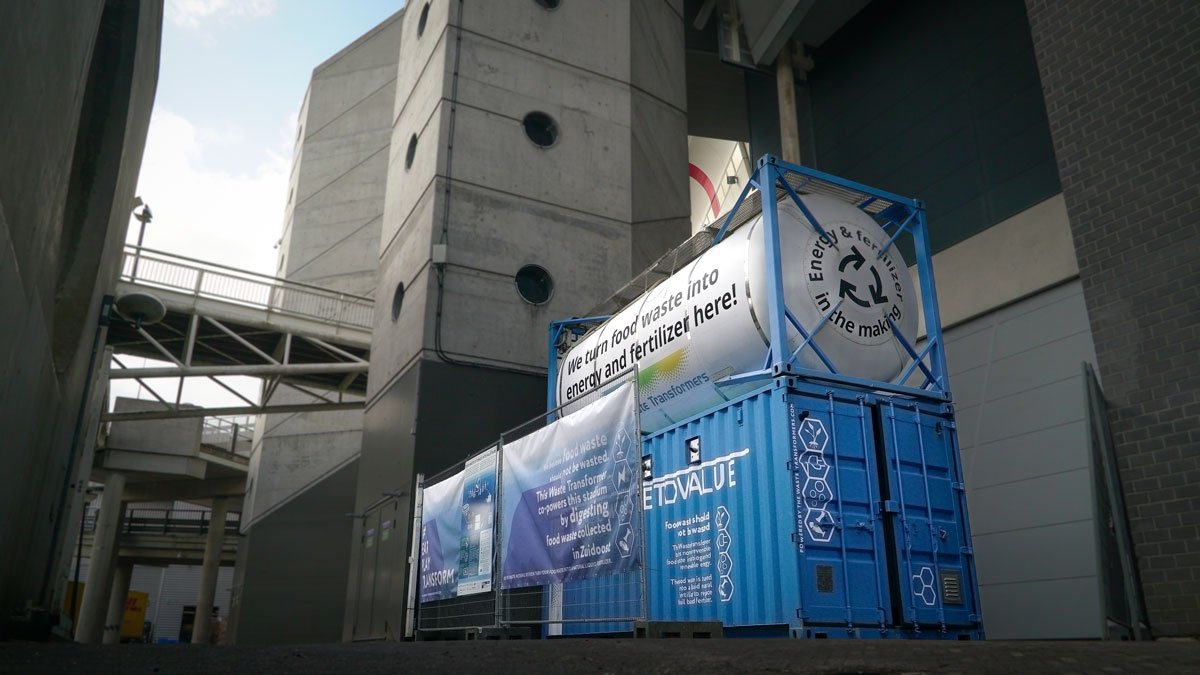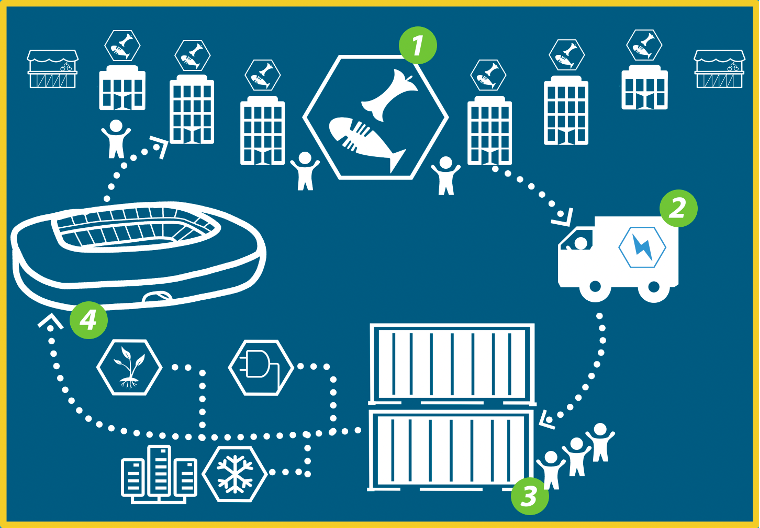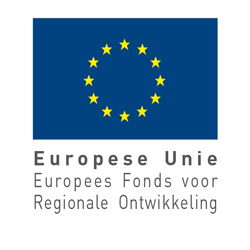The Amsterdam Zuidoost Installation

The innovative biodigester, called a Waste Transformer supports local businesses in Amsterdam Zuidoost to create value from their own food waste. Non-consumable food waste is transformed into local green energy and natural fertilizer. Besides the food waste from the Johan Cruijff ArenA, food waste from other local businesses is collected by people with a distance to the labour market and brought to this local biodigester. The project starts with collecting food waste from the Johan Cruijff ArenA and the offices of ING bank in Amsterdam Zuidoost.

How it works?
Inside the Waste Transformer, a natural process called anaerobic digestion takes place. Special bacteria break down the food waste and convert it into biogas and natural liquid fertilizer. The biogas is used to generate electricity to co-power the stadium. The residual heat is also used to cool a data centre within the stadium. This new source of green energy is a way to utilize what would otherwise be wasted.
#EatPlayTransform
Events at stadiums draw thousands of visitors who come to enjoy sports and other activities, but at full capacity, the JCA can host as many people as a small city, resulting in significant environmental and financial costs. With this on-site Waste Transformer, non-preventable food waste from the JCA, local businesses, office towers, and food markets in Amsterdam Zuidoost is transformed into value.

UEFA has embraced this local project with the Waste Transformer on-site and considers it a shining example for other stadiums around the world that want to become more sustainable.
WHY: Food waste that ends up in landfills or is incinerated produces methane, a greenhouse gas 28 times more potent than CO2, which contributes to global warming. This project aims to eliminate this effect while creating jobs and raising awareness about food waste.
HOW: (1) Food waste is collected daily by people with a distance to the labour market, from office buildings surrounding the stadium, and (2) brought to the Waste Transformer. (3) Clean energy is generated, (4) co-powering the stadium and cooling the data centre. Nutrients are also converted into a natural liquid fertilizer.
WHAT: The project creates social value by creating over 50 jobs in the next 10 years, eliminates the need for dirty diesel waste transport, provides a space for educating local students on sustainability, and encourages individuals to properly sort their waste for the first time.

Creating community connections through food waste management
Normally, large quantities of food waste mixed with other waste streams are collected from businesses in Amsterdam Zuidoost and transported far away from the city. With the Waste Transformer, this food waste is now transformed into value right in Amsterdam Zuidoost. The daily collection and transformation of separated food waste is managed by people with a distance to the labour market. These social jobs provide training and coaching to help them return to the job market, such as obtaining a driver's license or becoming a food waste coach in the local community.
Using transformed food waste to grow healthy grass.
Food waste contains valuable nutrients that can be used as a replacement for polluting mineral fertilizers. Traditional methods of waste management, such as landfilling or incineration, result in the loss of these nutrients. We are exploring how to efficiently use natural fertilizer from food waste to grow healthy grass for use in the football stadium, as an alternative to mineral fertilizers.
Mede gefinancierd in het kader van de respons van de Unie op de COVID-19-pandemie.
Voor dit project is er een bijdrage ontvangen vanuit uit het Europees Fonds voor Regionale Ontwikkeling van de Europese Unie.

